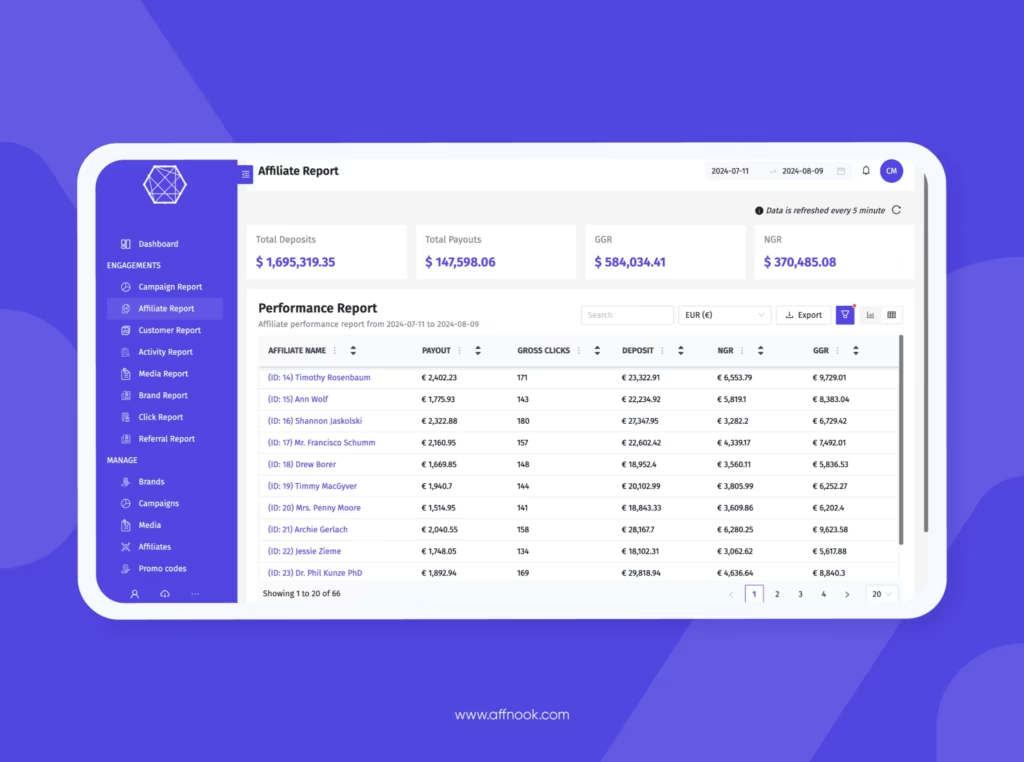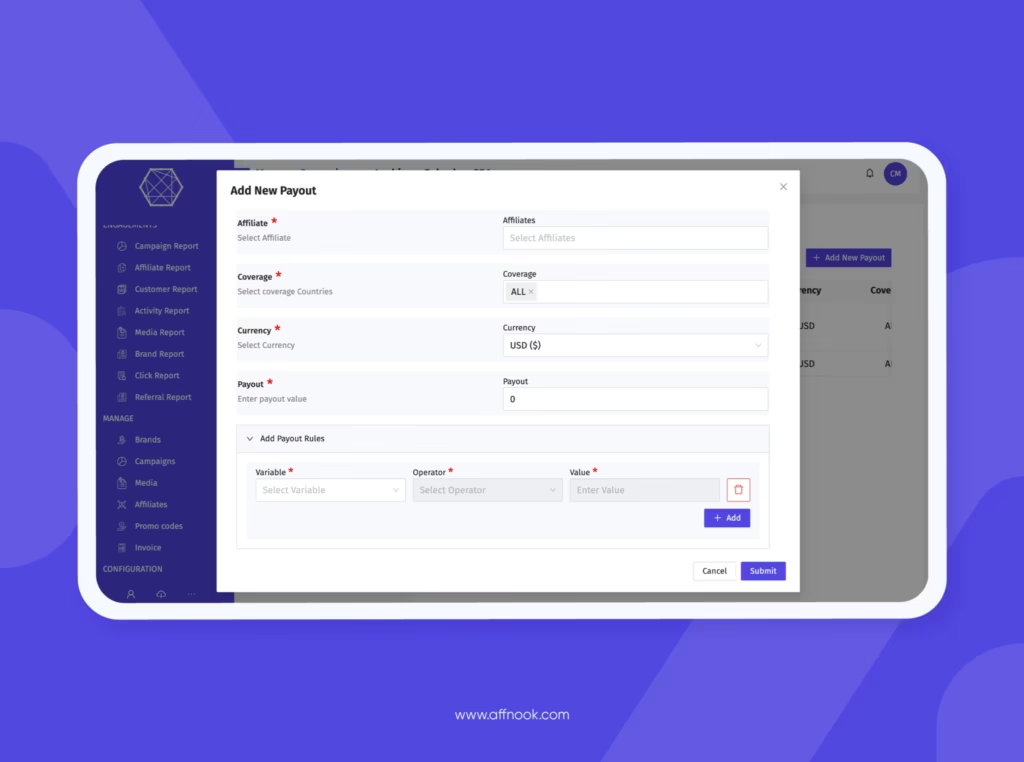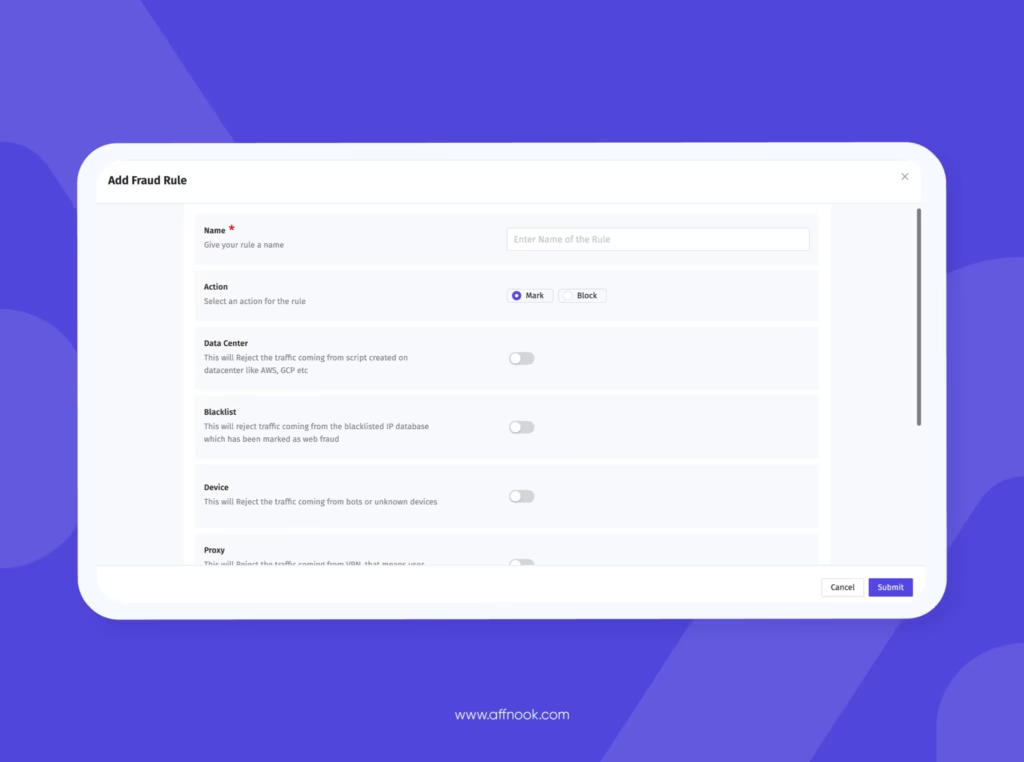There’s often confusion about how betting websites make money.
It’s a misconception that betting websites make money only when the team or player expected to win (the favorite), loses. However, the reality is far more strategic.
The reality? By carefully managing odds and balancing bets, online sports betting sites are designed to ensure steady returns, no matter the outcome.
This process isn’t as simple as it sounds. It involves a sophisticated mix of risk management, precise odds setting, and targeted marketing strategies.
If you’re a brand operator looking to build a new online betting site in 2026 from scratch, we’ve already created a guide to help you get started.
The online sports betting market is expected to have 182.5 million users by 2029. The user penetration will grow from 3.8% in 2024 to 4.8% by 2029. So, building the best sports betting sites can prove to be a game-changer.
In this post, we’ll explain how betting sites make money and maintain a competitive edge in the fast-moving iGaming industry.
Setting Odds with Precision
Betting odds determine how much an online bettor can win according to their wager and reflect the probability of a specific event occurring.
Let’s understand how betting odds work and how they can help iGaming operators maintain a profitable website in the sports betting industry.
First, let’s quickly understand the main types of betting odds.
- Moneyline Odds (American): Used in the US, these odds depict how much an online bettor needs to bet to win $100 (for favorites) or how much they’ll win for every $100 bet (for underdogs).
For instance, negative odds (like -150) reflect the amount the bettor needs to bet to win $100, while positive odds (like +200) depict how much one can win from a $100 bet.
- Fractional Odds (British): Most popular in the UK, these odds reflect the potential profit relative to the stake. A 6/1 odds means the bettors win $6 for every $1 wagered.
For instance, a $10 bet at 6/1 would return $70 ($60 profit + $10 stake).
- Decimal Odds (European): Common in countries like France and Spain, these odds depict the total payout for each $1 wagered, including the stake. A decimal of 4.00 means a $100 bet would return $400 ($100 stake + $300 profit).
How Do Betting Odds Work?
Though betting odds reflect the likelihood of an event happening, they are structured to ensure the operator or sportsbook stays profitable, irrespective of the outcomes.
Whether a sportsbook or iGaming operator runs the best cricket betting site, a football betting site, a horse racing betting site, or a casino betting site, the principle of profitability is the same.
However, this doesn’t mean being unfair to the bettors. They all offer competitive and fair payouts to the bettors.
Here are the key types of bets to understand their working mechanism.
- Prop Betting: Prop bets focus on specific events or performances within a game rather than its specific outcome.
For instance, online bettors would need to wager on whether a specific player scores over or under certain points. Online betting sites often feature prop betting, especially on new sports betting sites striving to attract diverse bettors.
- Moneyline Betting: Here, the online bettors wager on the clear winner of a sports game. Bettors who choose favorites have lower payouts because they are more likely to win.
On the other hand, if bettors place bets on underdog teams, they will get high returns because the chances of such teams winning are less.
For instance, a money line of -200 means the bettor should bet $200 to win $100 on the favorite. But, +300 means a $100 bet on the non-favorite or underdog can get the online bettors a whopping $300.
- Point Spread Betting: This betting odds requires the favorite team to win the match by a pre-decided specific margin.
For instance, if a team is favored by -5.5 points, they must get 6 points to win. It helps sportsbooks or iGaming operators balance bets on both teams.
What is the Role of Odds Compilers?
Odds compilers is another name for sportsbook traders.
Their main job is to set the betting odds.
Odd compilers leverage crucial data-driven insights, such as player performance, team historical data, weather conditions, and more, to calculate the probability of each betting outcome.
Besides, they continuously monitor market trends and adjust the betting odds. This helps them minimize risks and maximize profit for the sportsbook or operator without being unfair to the real-time bettors.
Odds compilers play a vital role in online betting because they must balance the odds in a way that attracts betting action on both sides of an event.
The Role of Vig (Vigorish) in Sports Betting
Vig (abbreviation for vigorish) describes the built-in commission that the sportsbook charges on bets.
To put it bluntly, it is the fee that a sportsbook or operator charges every bettor for placing a bet. Vig ensures that sportsbooks achieve profit, regardless of the outcome of a given event.
Understanding how the vig works can help iGaming operators or sportsbooks optimize their websites while maintaining fair betting conditions for bettors. This can help establish themselves not only as the most trusted betting site but also as a legal online betting site.
Here’s a quick example to consider.
Consider a sportsbook that offers a bet like Kansas City +2.5 (-110) vs. San Francisco -2.5 (-110). The vig is built into the odds.
Let’s understand how –
- +2.5/-2.5: This is the point spread. Kansas City (the underdog team) must win or lose by less than 3 points for a bet on them to win. San Francisco (the favorite) must win by more than 3 points for a bet on them to win.
- Odds (-110): These odds depict that an online bettor needs to calculate the wager amount, as $110 is required to win $100.
The vig is hidden in the odds.
The winning chances for both sides (52.38% each) is 104.76%.
Here, the extra 4.76% represents the sportsbook’s profit margin or vig.
How the vig works:
Consider a $500,000 bet on Kansas City and another $500,000 on San Francisco.
Irrespective of who wins, the sportsbook only pays out $454,545.45 to the winners. The remaining $45,454.55 is the profit of the sportsbook.
However, it’s not easy to earn profits. Sometimes, it could happen that the public heavily favors one team.
If the sportsbook believes the public is wrong, they may allow uneven betting, taking on more risk.
This can lead to losses if the public is right. On the other hand, it can lead to big profits if the sportsbook’s assessment is correct.
How do sportsbooks actually make money here? If there’s no clear favorite, sportsbooks work to balance bets. This helps reduce the risks and ensures steady profits.
Why Do Sportsbooks Charge Vig?
The answer is straightforward – charging vig allows sportsbooks to stay profitable.
It ensures that sportsbooks take in more money than they pay to the bettors, thus creating a consistent revenue stream. Otherwise, how do betting sites make money?
However, it’s crucial to understand that their actions are always fair and fall under responsible gambling. The sportsbooks abide by government regulations to maintain the integrity of the game.
What Percentage of Vig Does a Sportsbook Take?
Sportsbooks usually charge a vig of around 4.76%. This percentage comes from the implied probabilities of the odds, totaling 104.76% rather than 100%.
Vig can be calculated by dividing the sportsbook’s profit by the total payout to the winning side.
Let’s understand this with a quick example.
If $1,000,000 is wagered equally on both sides of a bet, the total pool is split between the two teams.
The winning side will get $954,545, including the $500,000 wager (original) and $454,545 in profit.
Profit for the sportsbook will be – $1,000,000 (total amount) – $954,545 (amount paid to the winners) = $45,454.
Percentage calculation – $45,454 / $954,545, which gives a vig of 4.77%.
Risk Management with Balanced Books
Sportsbooks or iGaming operators must manage risk effectively to reduce the chances of large losses.
Maintaining balanced books can help achieve the goal.
Balanced books reflect that the sportsbook takes equal wagers on both sides of a bet. This reduces the potential for a heavy loss if one side wins.
Here’s how it works.
If one side of a bet receives far more action than the other, the sportsbook faces the risk of a large payout if the underdog wins. Here, balancing the wagers is crucial to ensure no single outcome can impact sportsbook financial stability.
So, to achieve balanced books, sportsbooks need to adjust the odds in real-time based on where most bettors place bets, answering the question “How do betting sites make money?”
Revenue from In-Play Betting
Real-time, or in-play betting, boosts online bettors’ engagement as the event progresses. It doesn’t work like placing a single bet before the game begins and waiting for the outcomes.
This high frequency of bets directly increases the total wagered amount. This translates into more profit for the sportsbook through the vig on each bet.
What’s more? A sudden momentum swing in the game, like when a team starts scoring unexpectedly, creates opportunities for the betting site to introduce odds with slightly higher vig because of the bettors’ impulsive reactions.
Most importantly, the live game keeps users engaged for long periods. The more time users spend on the platform, the more likely they are to place bets, which further contributes to revenue. The top 10 online betting sites leverage this tactic to keep users engaged and improve profitability.
Leveraging Affiliate Marketing to Make Money
Affiliate marketing can help online betting websites drive targeted traffic. This tactic not only increases user registrations but establishes them as top best betting sites.
For instance, betting sites can create CTAs or landing pages that offer exclusive deals and bonuses. This can encourage and boost sign-ups, thus generating revenue.
However, the key to achieving profits via affiliate marketing is ensuring affiliates deliver peak performance. Therefore, iGaming operators must track their performance and reward the best-performing affiliates to motivate them.
Leveraging our iGaming affiliate management software – Affnook, can ease the journey.
Let’s quickly understand how Affnook can help –
- Real-Time Performance Analytics: Affnook offers real-time analytics to track affiliate performance. This helps iGaming operators identify top performers.

- Custom Payouts and Commission: It helps iGaming operators offer custom payouts and commission plans tailored to affiliates’ performance metrics like NGR or FTDs.This can enhance trust and help nurture long-term affiliate relationships.

- Fraud Detection: A 2024 iGaming Fraud Report states that affiliate fraudsters employ tactics like fake clicks, cookie stuffing, hidden landing pages, and URL hijacking to earn illegitimate commissions. Affnook has built-in fraud protection tools to prevent invalid traffic and fraud affiliate practices, ensuring campaign integrity.

This way, iGaming operators can maximize affiliate marketing ROI, drive user registrations, and scale their business effectively.
Summing Up
A betting website can be an excellent way to ensure a steady revenue stream. We are confident this post has helped you understand various strategies betting sites leverage to make money. Now, you have the answer to the question – “how do betting sites make money?”
For operators wondering how to make money online betting, it goes beyond the obvious tactics, such as in-play betting, adjusting odds, and maintaining balanced books. One of the most effective strategies is implementing affiliate marketing.
Partnering with skilled affiliates can help drive highly targeted traffic, increase user registrations, and boost revenue growth.
Our advanced affiliate management software – Affnook – can simplify the process and help you grow revenue faster.
Get in touch with our team to get started.
Help Section
How Do Betting Sites Make Money From Player Wagers?
Betting sites make money by setting odds in a way that ensures a margin, often called the “vig” or “house edge.” This margin guarantees profitability over time, regardless of short-term player wins or losses.
What Are the Main Revenue Models Betting Sites Use?
Betting sites use several models, including commission from bets (vig), margin on odds, subscription-based VIP services, and partnerships through affiliate marketing. These revenue streams diversify how betting sites make money across different markets.
Do Betting Sites Still Make Money If Players Win Frequently?
Yes. Betting sites make money long-term by using statistical probability and built-in margins. Even if some players win often, the aggregate betting volume ensures the house edge remains profitable.
How Do Betting Sites Make Money From Casino Games Versus Sports Betting?
Casino games generate revenue through fixed house edges embedded in slots, table games, and live dealer formats. Sports betting, on the other hand, relies on adjusted odds and vig. Both methods ensure consistent profitability.
Are Bonuses and Free Bets a Loss or a Way Betting Sites Make Money?
Bonuses and free bets may look like losses, but they are strategic tools. They encourage player acquisition and retention, increasing overall wagering volume. In turn, this helps betting sites make money through long-term player engagement.




